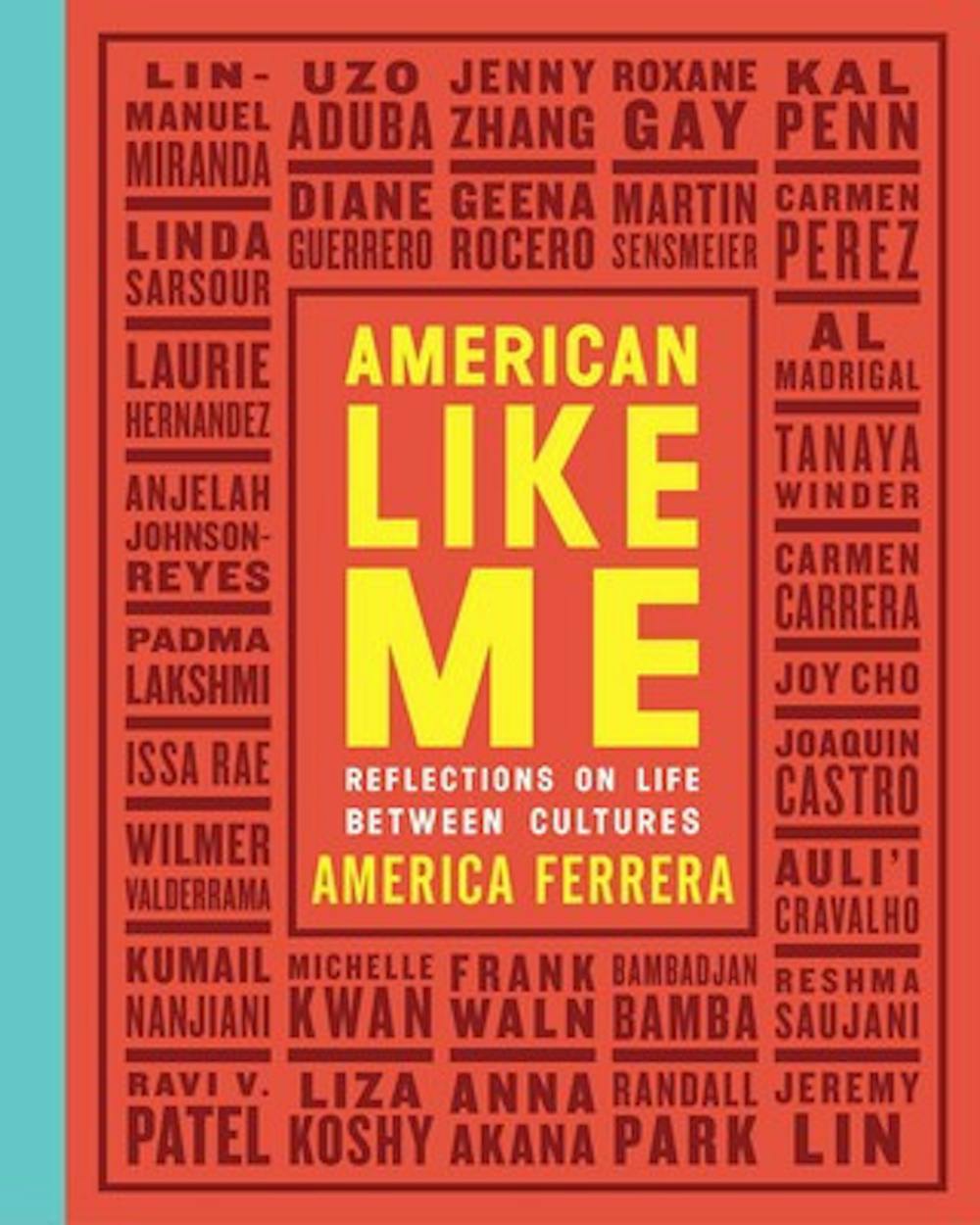In a collection including over two dozen actors’, writers’ and activists’ stories of being “hyphenated Americans,” former television star of the U.S. adaptation of Ugly Betty America Ferrera presents “American Like Me.” Every author included scribes a short, autobiographical retelling of the ways their rich, negotiated and transnational identities shaped the path of success they are on now.
Many of the writers lament their inability as children to value the differences that made them stand out whether they pertained to their families’ linguistic, religious, culinary, fashion or other differences from the North American mainstream and hegemonic culture. For several, it was not until their adulthood that they realized how the tenacity they witnessed in their parents, the frugality of economically difficult times and the extraordinary work ethic instilled in them launched them forward and sometimes ahead of peers who experienced fewer obstacles.
I didn’t read this work cover-to-cover. I spent my time prioritizing the vignettes written by people whose names I recognized:
- Michelle Kwan, a former U.S. Olympic figure skater with parents from Hong Kong and Guangzhou,
- Issa Rae, a Senegalese-American television writer and actor,
- Roxane Gay, a Haitian-American writer and
- Uzo Aduba, a Nigerian-American actor.
I read a few by people who were less familiar to me: Geena Rocero, a Filipina beauty queen, Bambadjan Bamba, an actor from the Ivory Coast, and Jenny Zhang, a Chinese-American writer. Collectively, their stories tell of an ongoing struggle to reconcile the ways they inhabit multiple cultures at once and sometimes how the dualities conflict. Issa Rae, author of “The Misadventures of Awkward Black Girl,” wonders if she’s practicing Ramadan, an annual and Islamic period of fasting, for the right reasons. Along with her family, Jenny Zhang, author of “Sour Heart,” struggles in weighing how unlimited, cheap food in a U.S. restaurant chain may be fattening her wallet but doing a disservice to their health. And, initially, Uzo Aduba of “Orange Is the New Black” laments the gap between her two front teeth that in her mother’s culture is a sign of honor.
I like the work and I’m glad it exists, particularly at this moment when, at the time of this writing, we as a nation are re-examining what birthright citizenship means. I’d recommend this work to any student whose parents come from another country. I’d recommend it to international students who are considering remaining in the United States beyond their time at Middlebury. And I’d recommend it to anyone who is a fan of the stars who share about their lives within.
As a person in the Middlebury community who has a parent who is an immigrant, I realize many of the ways that the prioritized narratives, stati, origins and accepted ways of being in this country are infrequently my own. This is an encouragement to anyone who finds him/her/themselves among these marginalized groups.
Is there any way that the book fails? Well, I wouldn’t say “fail,” per se. What I would say is that it does not lend to reading it from cover to cover. This anthology is made for savoring it in morsels. Also, as a 309-page hardback, it’s not quite the type of work you see someone reading for leisure on a train. For me, I also think it might not make it to the “coffee table” genre because the narratives are text-heavy and just a little too long for casual paging. I think readers are likely to pull this book off of a shelf looking for a specific someone’s narrative than reading it from beginning to end. For more works like this one, see Sandra Cisneros’ “The House on Mango Street,” Eddie Huang’s “Fresh Off the Boat” on go/overdrive/ or Jhumpa Lahiri’s “Interpreter of Maladies.”
Literatures & Cultures Librarian Katrina Spencer is liaison to the Anderson Freeman Center, the Arabic Department, the Comparative Literature Program, the Gender, Sexuality & Feminist Studies (GSFS) Program, the Language Schools, the Linguistics Program and the Department of Luso-Hispanic Studies.
The Librarian Is In

Comments



